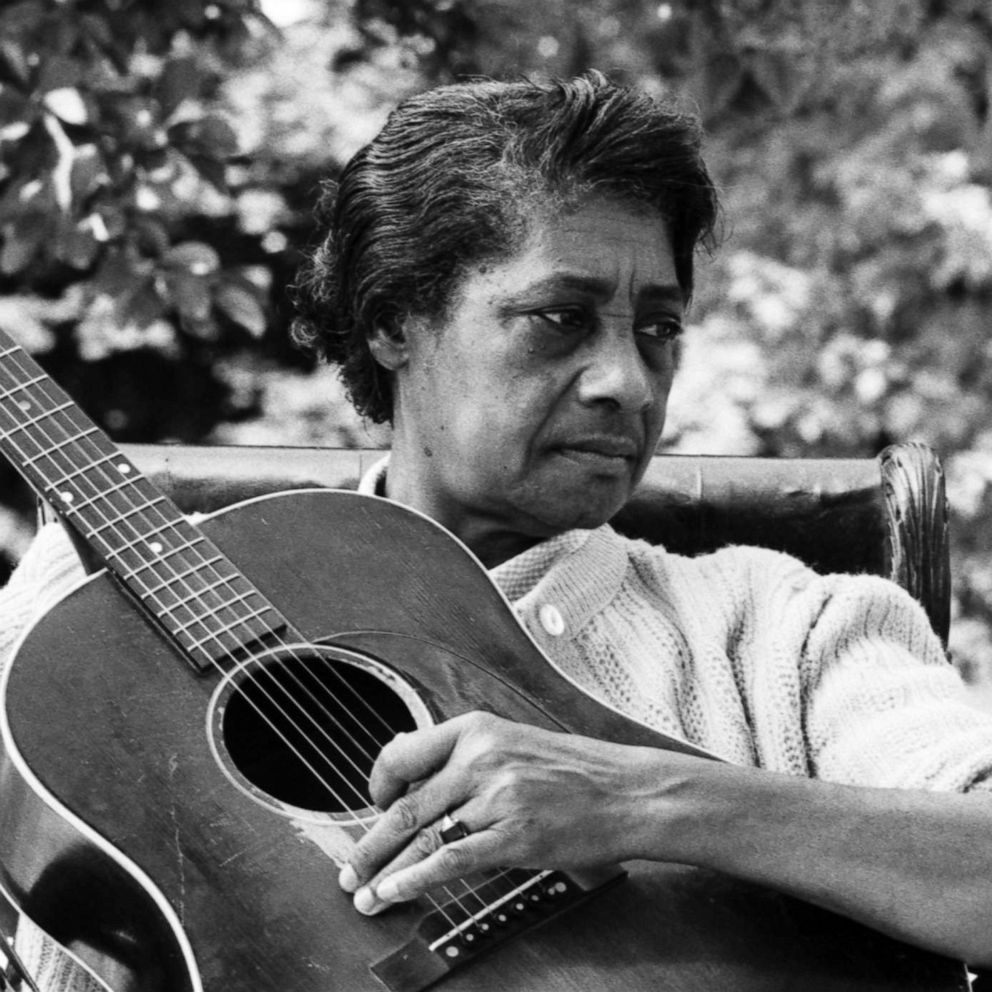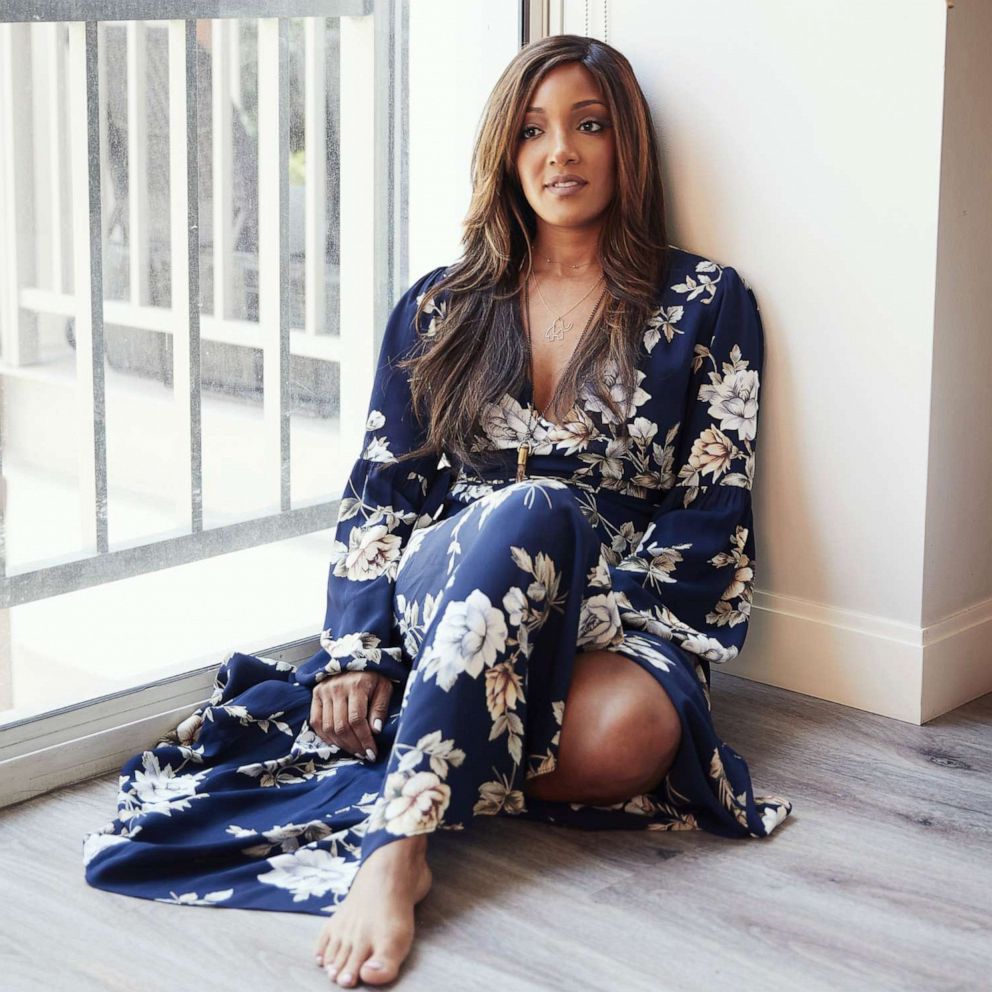Alice Randall says Black country's moment has been a long time coming
Randall was the 1st Black woman to cowrite a No. 1 country hit.
When Alice Randall was writing her life story, she had no idea its eventual publication would coincide with a resurgence of interest in the contribution of Black Americans to country music -- a story that includes, most recently, Beyoncé's hit "Cowboy Carter" album, and for several decades, Randall herself.
Randall, a Nashville-based songwriter and novelist, was the first Black woman to cowrite a No. 1 country hit, Trisha Yearwood's "XXX's and OOO's," in 1995. The road to that achievement is documented in detail in her book "My Black Country," out this month, a frank exploration of Randall's unique position as a Black woman in Nashville's country music scene, which is predominantly white. Many of her songs, she said, were written with Black protagonists in mind, or came from her own experience, even though the stars who made them hits -- Yearwood, Glen Campbell, Moe Bandy, Marie Osmond and Radney Foster, among others -- were white.
But things are changing. A companion album, "My Black Country: The Songs of Alice Randall," also released this month by Oh Boy Records, is a collection of Randall's best-known songs, recorded for the first time entirely by Black women including Rhiannon Giddens, Allison Russell, Valerie June, Leyla McCalla and Randall's daughter Caroline Randall Williams. The emergence of those artists over the last decade, as well as continuing scholarship and a pop phenomenon like "Cowboy Carter," are casting a much needed relook at the role Black Americans have played in shaping country music's evolution over the last century.
Randall said Black country's moment was a long time coming.

"We've had a lot of polarization in the country over the last few years and a lot of people are beginning to [ask], 'What does it mean to be American?' And when people ask that kind of question, they think about country music -- and we're beginning to get a new set of answers, and they include Black, brown, and indigenous voices," she said.
In her book, Randall challenges some of the foundational narratives in the music's history, such as "Blue Yodel #9" by Jimmie Rodgers, the bestselling of the 13 "Blue Yodel" songs he recorded over six years, between 1927 and 1933. What most people don't know, she said, is that the 1930 recording features Louis Armstrong on trumpet and Lil Hardin, his wife, on piano. Other Black pioneers Randall highlights are DeFord Bailey, the first Black performer to appear on the Grand Ole Opry; Herb Jeffries, a jazz singer who became Hollywood's first Black singing cowboy; country star Charley Pride; and Ray Charles, whose 1962 hit album "Modern Sounds in Country and Western Music" broke the racial barriers at the height of the Civil Rights movement.
"There has always been Black presence in country music," Randall said.
Randall grew up in the North, in Washington and Detroit, which today she calls "Detroit Alabama" for its rich Southern influences, both within her household and on the street. Due to the Great Migration earlier last century, Rust Belt cities in the upper Midwest were teeming with Southerners. Her family played country music on the radio, and their stereo and her memories are filled with scenes from her old neighborhood like a watermelon truck rolling down the street in front of her grandmother's house, with boys selling slices for a nickel.
"You don't get more country than that," she said.

As a young woman, Randall said she "heard the Black and Southern-ness" in music she was listening to, from Hank Williams to Johnny Cash, while she was also discovering Black artists like Swamp Dogg and Stoney Edwards. When she got to Nashville and tried to break into the publishing world as a songwriter, many of her peers, like Steve Earle, were champions for her writing starting in the 1980s, but she also confronted sexism and racism from more established quarters of the industry. Some of her songs were lifted straight from the Black experience in America -- for example, her lyrics for "The Ballad of Sally Anne," now a bluegrass standard, describe a lynching. The song, she said, "was calculated to be subversive."
Others were less subtle. The updated covers of her songs that appear on "My Black Country" reveal nuances to her songs not previously heard. "Went for a Ride," recorded by Radney Foster in 1992, suggests a more romantic version of the Old West while Adia Victoria's current version emphasizes the hardships. Likewise, Caroline Randall Williams turns "XXX's and OOO's" into a spoken word piece emphasizing female empowerment.
"You hear the anxiety of keeping a balance of love of money that women in the art world feel," she said. "You also hear the end of the story, that the house is paid for by her works. I love those details -- I was that American girl."






